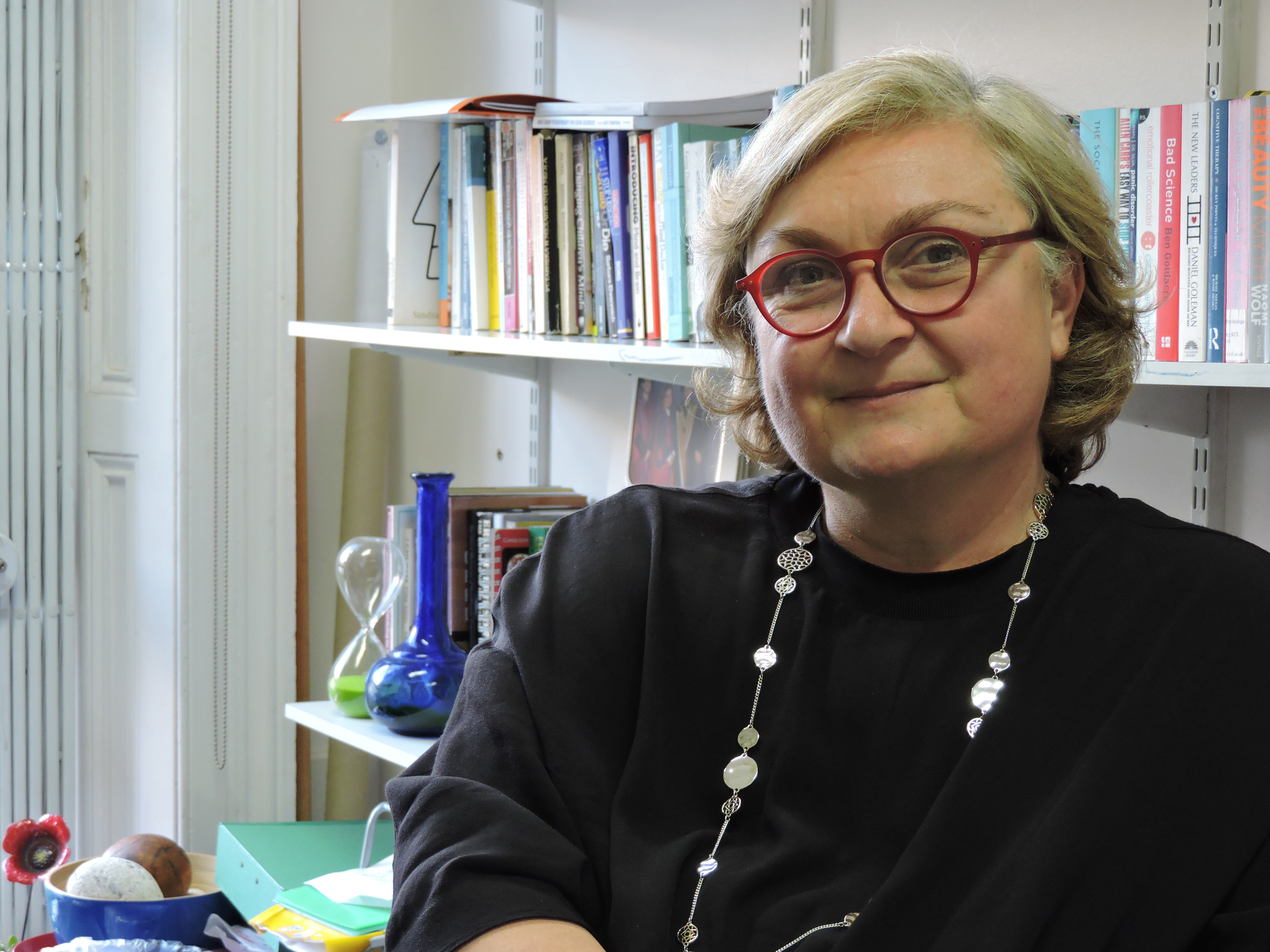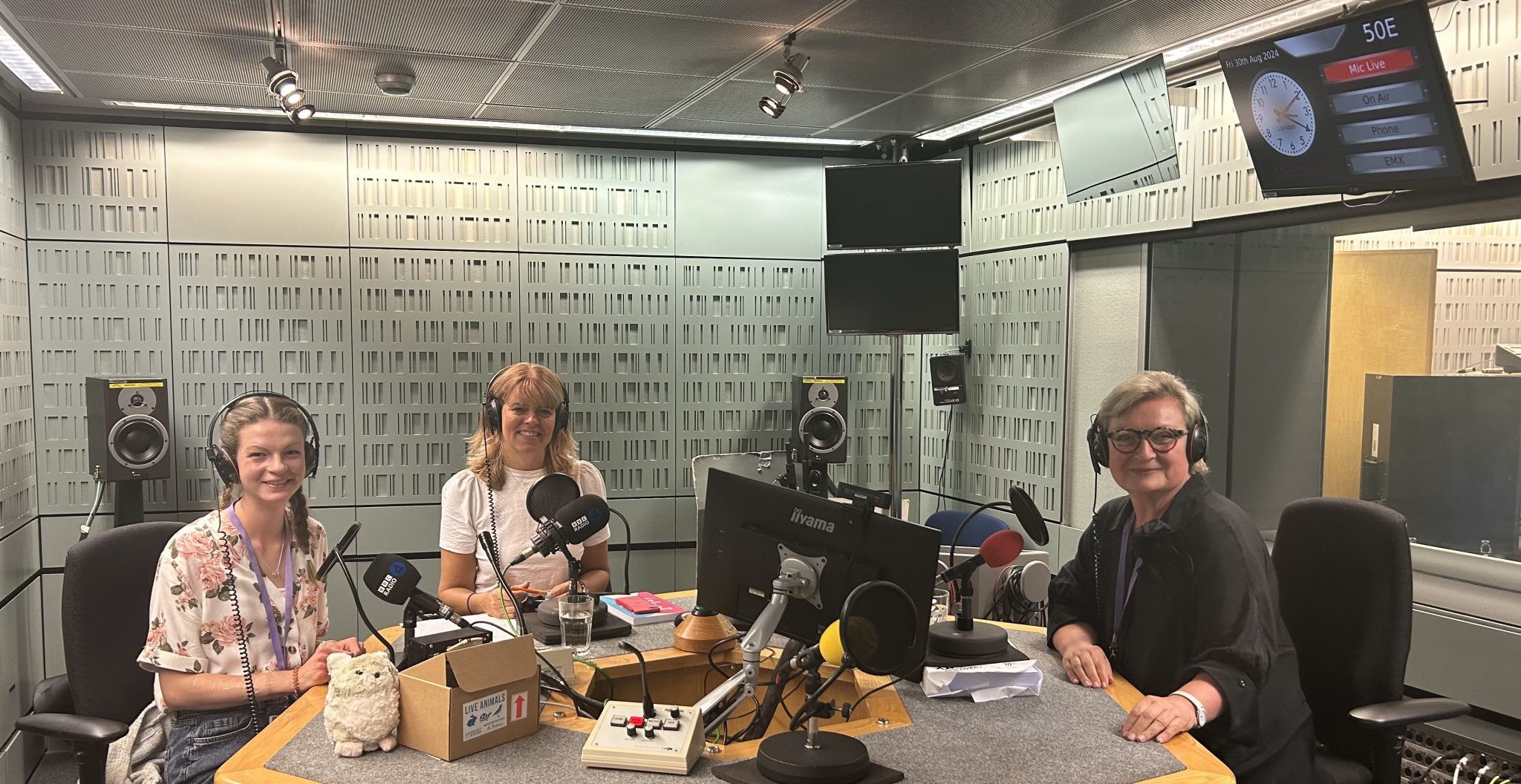Advancing mental health and autism research: An interview with Kate Tchanturia#
In this interview, Professor Kate Tchanturia describes her career at the intersection of research and clinical practice in autism and eating disorders, and shares her reaction to receiving the prestigious National Award of Georgia.
About Kate Tchanturia#
Professor Kate Tchanturia MAE is a psychologist specialising in eating disorders, currently serving as a Professor of Psychology at the Institute of Psychiatry, Psychology, and Neuroscience at King’s College London. She is also lead clinical psychologist at the South London and Maudsley NHS Foundation Trust for the National Eating Disorder Service. She was elected as member of the Physiology and Neurescience section of Academia Europaea in 2021.
Her research focuses on women’s mental health, cognitive and socio-emotional processes in eating disorders, and the intersection of autism and eating disorders. Professor Tchanturia’s work in developing the PEACE pathway for patients with co-existing autism and eating disorders has been groundbreaking, emphasising patient-centred care and collaborative development with those affected by these conditions.
pathway for patients with co-existing autism and eating disorders has been groundbreaking, emphasising patient-centred care and collaborative development with those affected by these conditions.
Having studied and started her career in Georgia, in 2024 she was awarded the prestigious National Award of Georgia, becoming the first psychologist to receive this honour from President Salome Zurabishvili.
Watch the interview#
Read the interview#
Congratulations on receiving the prestigious National Award of Georgia! How does it feel to be the first psychologist to receive this award, and what does it mean to you personally and professionally?
On a professional level, recognition of this scale is always stimulating. It makes you feel appreciated, and more connected to the own culture. This reflects the broad dissemination of the work I’ve been doing both here in Britain, internationally and in Georgia.
I’m absolutely delighted and honoured to be the first psychologist to receive the highest Georgian award from the President of Georgia, Salome Zurabishvili.”
Your work has significantly advanced the understanding of the relationship between autism and eating disorders. Can you elaborate on the key findings of your research in this area?
The main project I’ve led on is the PEACE Pathway. We have a fantastic website, and I encourage anyone interested to check out our free resources. I have also published a book that summarises our journey from experimental research to clinical practice, detailing how my wonderful team and I achieved this.
It’s crucial to base our clinical practice on evidence. Most of what my research and clinical team do is grounded in research or clinical evidence. Autism and eating disorders are very well-known to my colleagues, but the coexistence of these two conditions was relatively unknown – largely because autism is often seen as a male-dominated condition.
I intentionally don’t refer to it as a disorder, as the term “autism spectrum disorder” is not appreciated by the autistic community. Autism is a neurodevelopmental condition, not necessarily a pathology, and it doesn’t mean autistic people have a disorder. Autism and neurotypical development are more like parallel universes. The autistic community has many intellectual and personal strengths.
Eating disorders, on the other hand, are serious illnesses, and should be treated as such. We need to treat them thoughtfully to achieve the best outcomes, adapting treatments for neurodivergent individuals.
Over the years, through experimental work on neurocognitive signatures in eating disorders and emotional processing, I’ve developed innovative therapeutic tools. But then I realised, through research in both autism and eating disorders, that some patients may have neurodevelopmental conditions that prevent them from receiving the appropriate treatment which is developed for neurotypical patient groups. We need flexibility, more research and personalised approaches to effectively treat eating disorders in the autistic community.
This is at the core of the work I’m doing at King’s College London, and Maudsley Hospital.”
The PEACE pathway for autism and eating disorder comorbidity is a pioneering initiative. Could you explain the development process and the impact it has had on patient care?
So, what we have done? While the overview might sound very simple, it’s been a long journey and a steep learning curve. We focused on improving communications with people who have autism and eating disorders, becoming more attuned to the complexities of the sensory system in autism. We also made environmental adaptations, dietetic adjustments, and collaborated more with families, the lived experience community and autism experts.
Engaging a multidisciplinary and multi-expertise team has been crucial. I’m proud to say that we are the first eating disorder service in the UK to be accredited by the National Autism Society, as an autism-friendly service, following a rigorous assessment of our practice.
We are committed to sharing our findings, so as I mentioned earlier, we created a free website and published a book. We hope many centres in the UK and internationally will follow our example, helping to serve a community that deserves recognition and tailored clinical services.”
What are the current challenges in the field of eating disorders and mental health that you believe need more attention and research?
I’m extremely grateful to the Health Foundation Medical Research Council, the Maudsley Charity for supporting my research. Without it, we wouldn’t have developed the PEACE pathway, or the tailored approaches we are pursuing today. However, we urgently need more funding for research to better understand eating disorders and coexisting conditions.
I’m very privileged to be a Member of Academia Europaea. While funding is critical, close collaboration and the exchange of ideas are hugely important for any scientific field. As someone who came from Eastern Europe and now practices in the UK, I’m thankful for the opportunities the UK has given me. I try to give back by facilitating collaborations between King’s College and universities in Georgia and globally. However, we need even more active engagement and collaboration, especially as the political situation in Georgia is currently challenging. I believe that closer European connection/ collaboration – in science, art, and in all areas of life – will be very beneficial for Georgia and European countries.”
 .
.For further information please contact AECardiffHub@cardiff.ac.uk
 .
.




